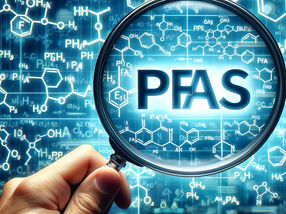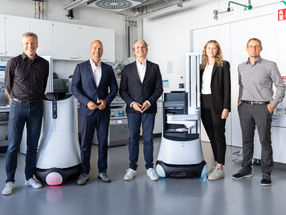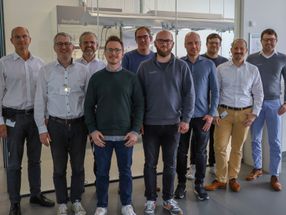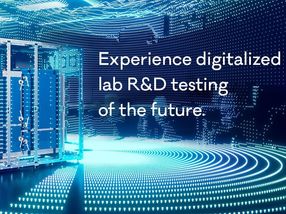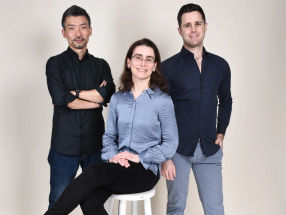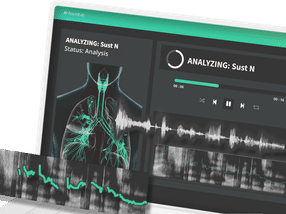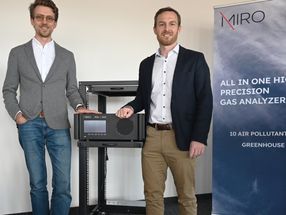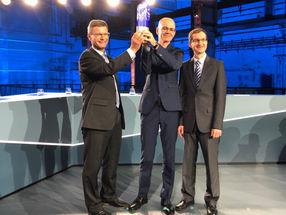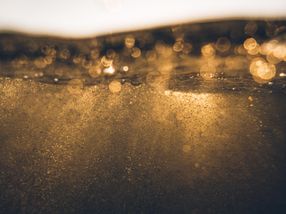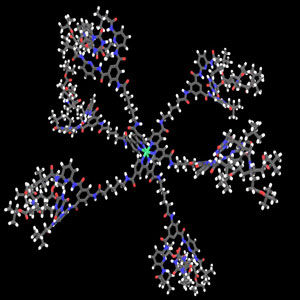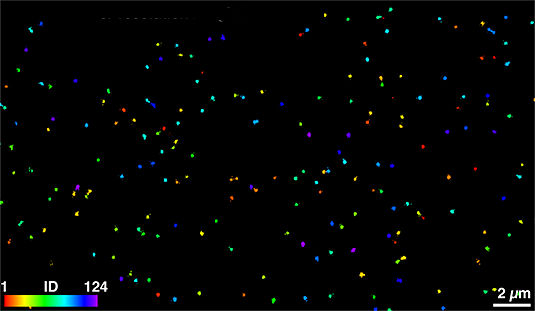Without using animals: antibodies from algae for pregnancy tests
Start-up develops new process - DBU provides funding
It is not every day that young start-ups from Germany launch an innovation with industry-changing potential onto the market. But this is exactly what Phaeosynt, a company founded out of the University of Hanover, is planning to do with its diatom-derived antibodies for medical diagnostics. Until now, the entire industry has largely relied on animal cells or living animals. Phaeosynt wants to change that. The German Federal Environmental Foundation (DBU) is funding the start-up with 125,000 euros.

From the lab to the market: the start-up Phaeosynt wants to use antibodies produced from diatom cultures in pregnancy tests, among other things. This is environmentally friendly and avoids animal testing.
Phaeosynt GmbH
"Absolutely worthy of funding from an ethical point of view"
"Medical biotechnology is a highly innovative field with high added value for society, but also requires considerable resources," explains Alexander Bonde. The DBU Secretary General continues: "The environmental relief potential of Phaeosynt's concept is considerable, and the process is also absolutely worthy of funding from an ethical point of view." According to the founding team Stephanie Pfeil-Coenen, Dr. Alina Eilers and Stas Hans, the company focuses on the production of foreign proteins in diatoms; these are mostly antibodies. These are often used in medical diagnostics. The best-known examples of such use include the Covid-19 rapid tests introduced during the coronavirus pandemic, as well as pregnancy tests.
Plant-based alternative saves resources, energy and space
According to Phaeosynt, the majority of the antibodies required are currently produced using animal cells. "With our antibodies from diatoms, we are solving several problems of the current production process," says Eilers. Firstly, animal cell cultures require considerably more resources, energy and space to grow antibodies than their plant counterparts. "These already thrive at lower temperatures, namely 20 instead of the usual 37 degrees Celsius, and therefore require less energy," explains Eilers. Algae cultivation is also much simpler and more robust.
The start-up's goal: antibody production without using animals
"Some diagnostic antibodies are still grown in live animals," says Eilers, explaining another disadvantage of current production standards. This initially concerns polyclonal antibodies, which are taken from the bloodstream after immunization of an animal. According to Eilers, this animal experiment is often the first step in the production of any animal-derived antibody. Another method works with the help of cancer cells placed in the abdomen, which in turn generate the desired antibodies. According to Eilers, after the antibodies have been produced several times, the animals die due to the size of the tumors. Although the process is still permitted within the European Union (EU) with a special permit, this type of antibody production mainly takes place in Asia. A plant-based alternative means that animals are no longer required for this antibody production. Additional transportation costs and the considerable consumption of resources for animals kept solely for antibody production could also be saved. "For us, the project is therefore a big win both ethically and in terms of the market economy," says Eilers.
First animal-free pregnancy test in the pipeline
The company plans to specialize in the production of such antibodies, and two patents have already been filed. To increase the visibility of its technology, Phaeosynt first wants to launch the first vegan and animal-free pregnancy test based on diatoms. To this end, there is a cooperation with the Weimar-based company Senova, which is responsible for manufacturing the tests from bioplastics. However, according to the responsible DBU consultant Dr. Hans-Christian Schaefer, this is only the first step. "Medical diagnostics is a huge field, especially away from such consumer-oriented products. DBU funding can help to establish Phaeosynt on the market - to the benefit of hospitals, laboratories and supplying companies."
"Prime example of environmentally friendly biotechnology"
According to Schaefer, the young start-up was particularly convincing in two aspects: in addition to their research-based expertise, those responsible had a good sense of what was happening on the market. This is demonstrated by the idea of the animal-free pregnancy test as an entry-level product. "With its good mix of practical and research-based expertise, Phaeosynt is a prime example of environmentally friendly biotechnology," says Schaefer.
Note: This article has been translated using a computer system without human intervention. LUMITOS offers these automatic translations to present a wider range of current news. Since this article has been translated with automatic translation, it is possible that it contains errors in vocabulary, syntax or grammar. The original article in German can be found here.
Something is happening in the life science industry ...
This is what true pioneering spirit looks like: Plenty of innovative start-ups are bringing fresh ideas, lifeblood and entrepreneurial spirit to change tomorrow's world for the better. Immerse yourself in the world of these young companies and take the opportunity to get in touch with the founders.










